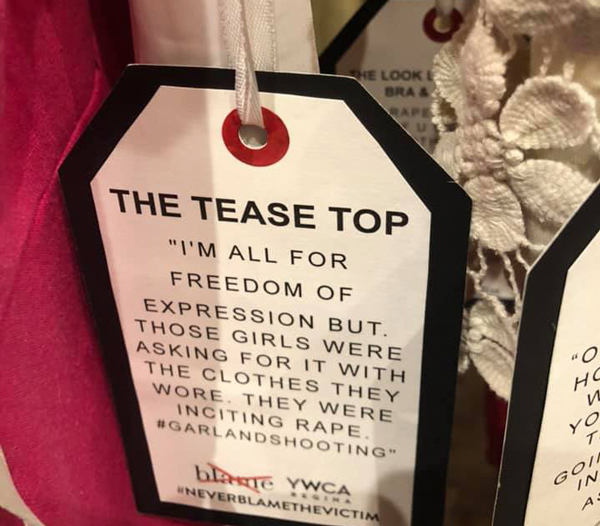
A Prince Albert sexual assault counsellor is hoping a social media campaign will shift societal views on a “heartbreaking” issue in Saskatchewan.
Karla Ethier with the city’s sexual assault centre said the No Story Left Untold campaign—which will run throughout Sexual Assault Awareness Week—is focused on sharing people’s stories and resources.
“Some people find it very traumatizing (to share their stories), but I think for some people it is really empowering just to let go of the secret and to kind of take back some of that power,” said Ethier.
She added that every story is different, and sharing it could normalize the situation for someone else and encourage them to seek help.
The campaign is supported by Sexual Assault Services of Saskatchewan (SASS) and its 13 member agencies.
“Sexual Assault Awareness Week assists us in highlighting this important issue. It also shows survivors that help is available, and demonstrates to the public what everyone can do to end sexual violence in Saskatchewan,” said Kerrie Isaac, SASS executive director, in a news release.
SASS, the University of Saskatchewan’s Community-University Institute for Social Research and the Federation of Sovereign Indigenous Nations collaborated on a major report released earlier this year.
Sexual Violence in Saskatchewan: Voices, Stories, Insights, and Actions from the Front Line breaks down a number of factors related to sexual assault, including location, the #MeToo movement and substance abuse.
Statistics Canada says one in three women and one in six men will experience sexual assault in the country. Saskatchewan has one of the highest rates out of its provinces and territories.
Ethier said rather than focusing on the victims, though, society needs to place more emphasis on the behaviours of perpetrators.
“A lot of people feel sexual assault is a women’s issue—It’s an everybody issue,” she said.
“We focus so much on prevention and sort of aim it all at women, who are primarily the targets of these types of offences, but we just want to really put it out there that we need to focus more on the behaviour of men, who are primarily the perpetrators of these types of crimes,” she said, recognizing that in many situations men are the victims and women are the perpetrators.
“We need to look at our own attitudes and beliefs as a society.”
In Saskatchewan, says the report, 85 per cent of survivors are assaulted by someone they know. Ethier said one of the largest myths is that people are assaulted by strangers.
“It’s just so often someone that the person knows and a lot of times, especially for children, it’s a family member. I think that that’s a really hard pill to swallow,” she said.
The majority of victims, at 71.1 per cent, told someone about the assault, most to family and friends. Fewer than one quarter, 23.7 per cent, reported the assault to police.
The report said sexual assault is significantly higher in rural communities across North America, and also higher in members of the LGBTQ community.
The Prince Albert Sexual Assault Centre also serves La Ronge and Meadow Lake. These communities are already isolated, said Ethier, but pointed out the difficulty of accessing services for communities in between such as Big River and Spiritwood.
If you’ve experienced a sexual assault—which Ethier said includes any sort of unwanted sexual violence, harassment or attention—you can visit www.pacrisis.ca/sexualassault for guidance.
If it’s recent, it’s important to preserve the evidence by not bathing, for example, and to seek medical attention. She said most of the adult cases are historical sexual assaults. A lot of the recent ones are in children, which Ethier said is likely because it’s mandatory to report them.
Ethier said it’s important to tell someone. Even if it’s a family or friend, they might know to refer you to a sexual assault counsellor.
“Tell somebody. I think bearing the secret on your own is really difficult, whether that’s (to) us or somebody else…and if that person doesn’t believe you, then tell somebody else,” emphasized Ethier.
At the request of the client, a sexual assault counsellor is able to go with the client to the police station, hospital and courts.
You can follow along with the No Story Left Untold campaign on Facebook @PASAC.MCU and Instagram @pasexualassaultcentre. The SASS is also featuring the campaign on its social media on Facebook @sass.sask, Instagram @sexualassaultservices.sask, Twitter @SexAssaultSK and LinkedIn @sassk.

